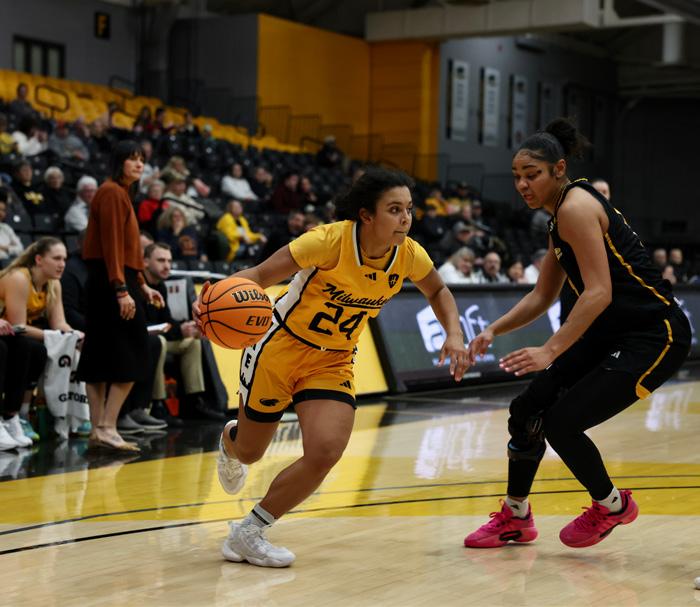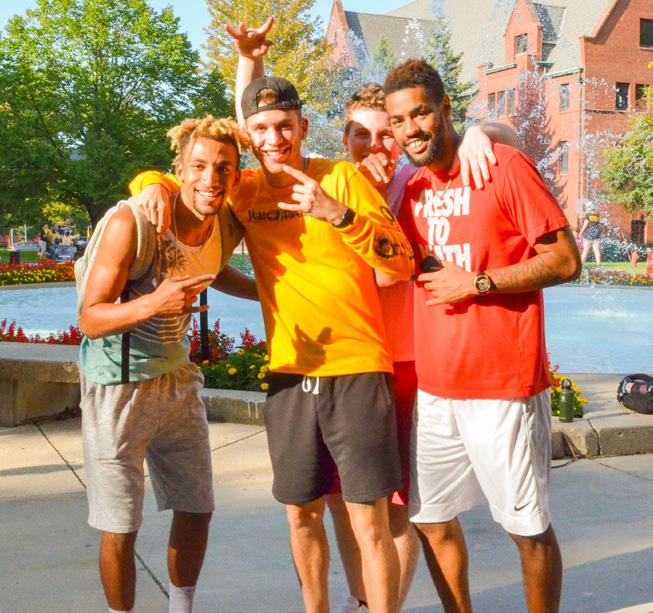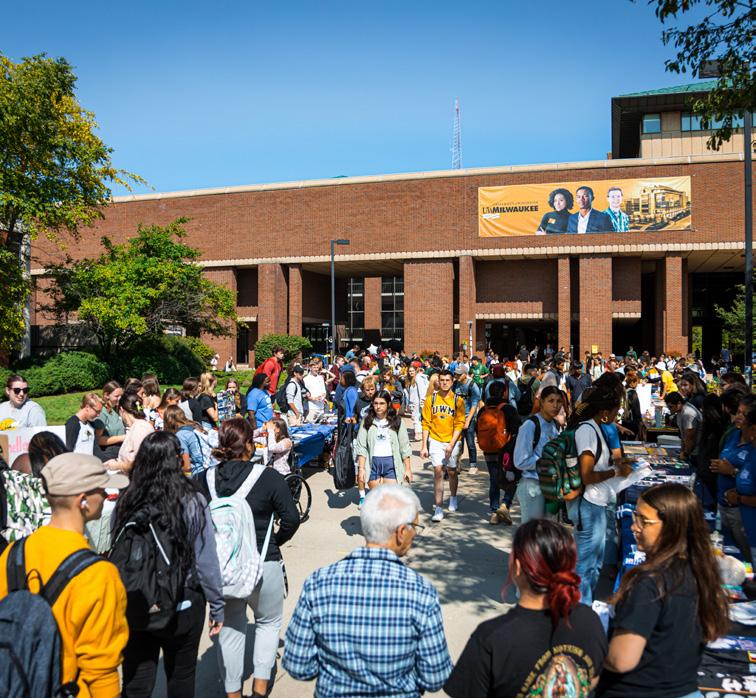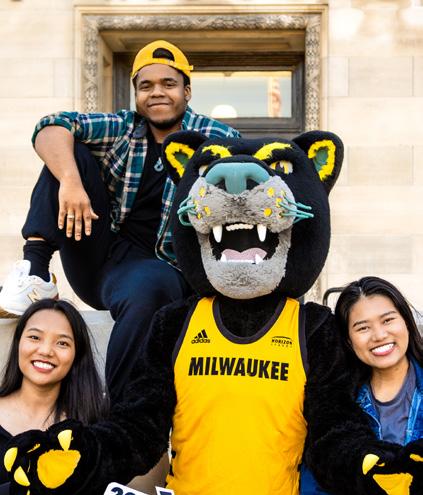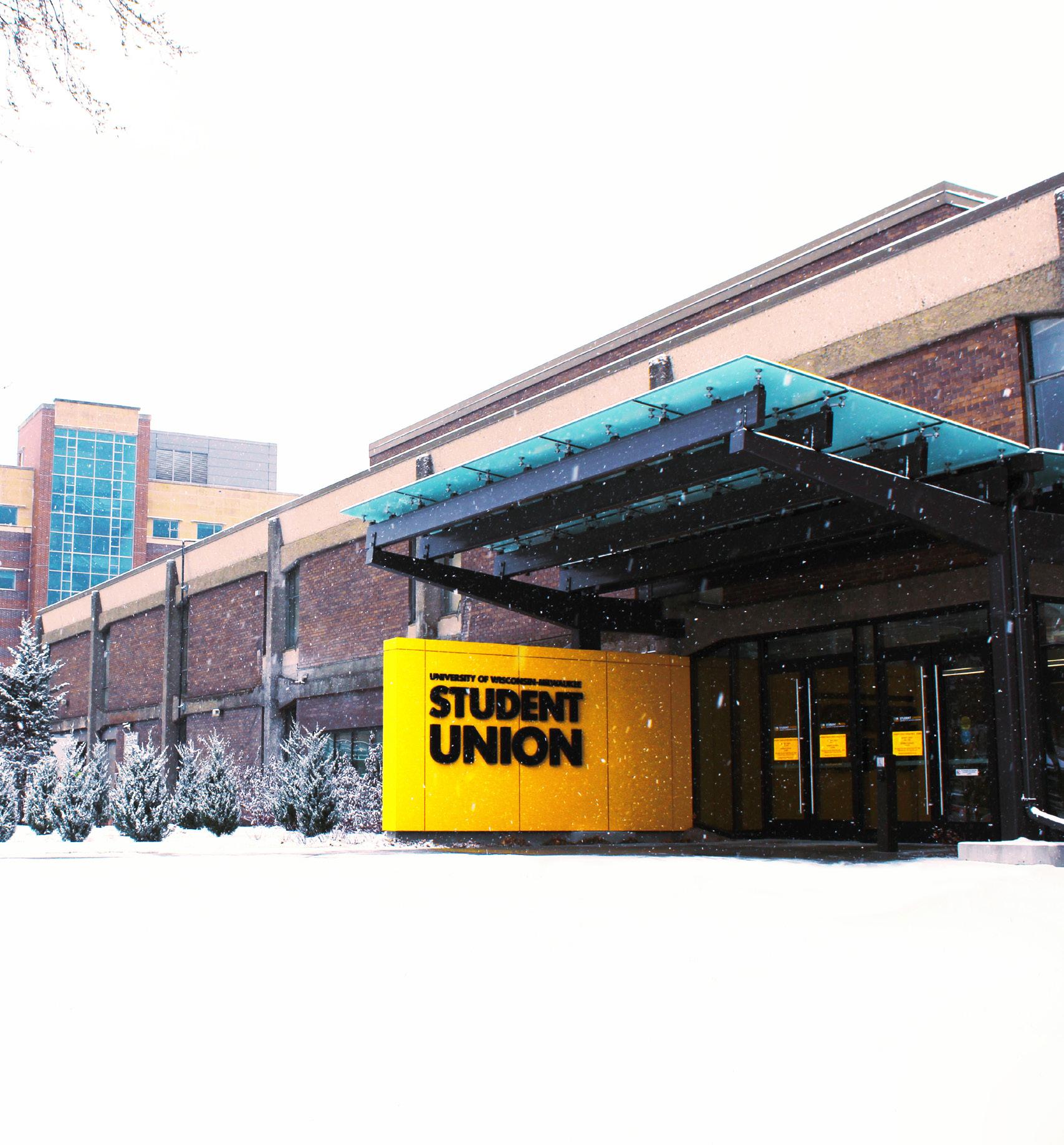

2023-2024 Annual Report
DIVISION OF STUDENT AFFAIRS
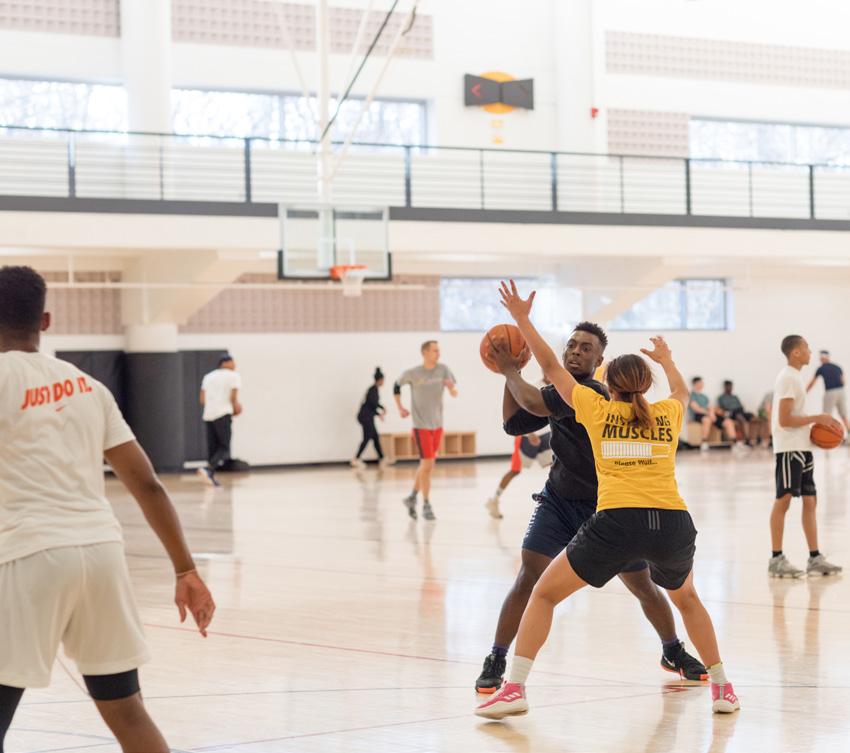


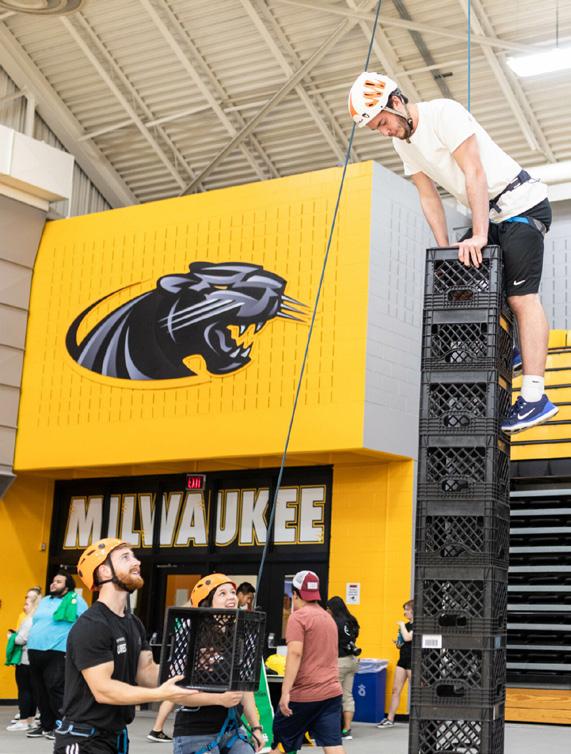
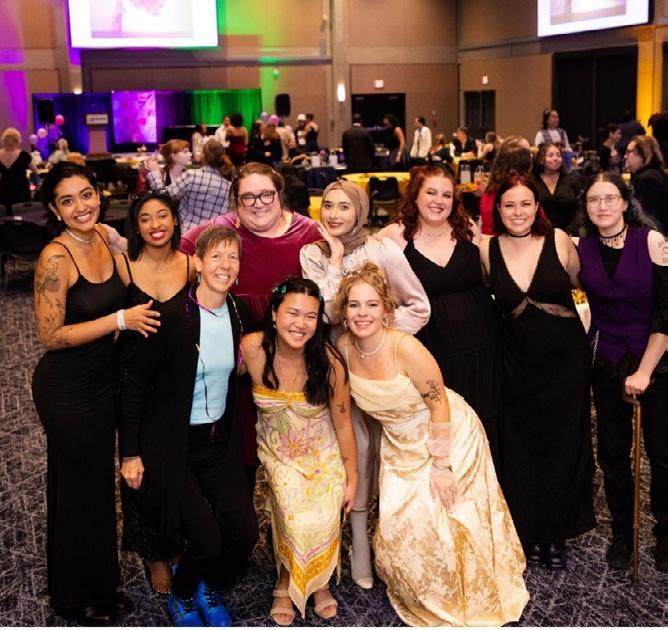
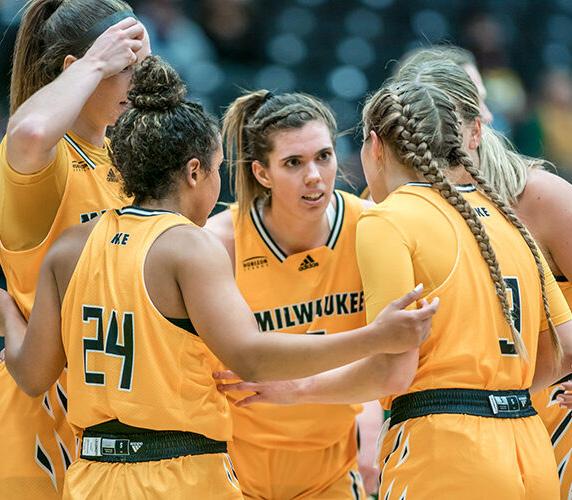

PREFACE FROM VICE CHANCELLOR KELLY HAAG
This report captures the work of the Division of Student Affairs during the 2023-2024 academic year. There are too many highlights to call out individually here, but I want to share a few milestones.
• The Milwaukee Athletic Department helped celebrate the official grand opening of the Orthopaedic Hospital of Wisconsin Center with a ribbon-cutting ceremony.
• After renovation and temporary relocations, the Student Union welcomed students and staff back to their redesigned space.
• After being closed for an extended period post pandemic, the Gasthaus reopened to host events and provide tasty meals to our community.
• The Women’s Resource Center celebrated 30 years in November.
• The Inclusive Excellence Center (IEC) announced its new name (the First-Generation+ Resource Center) to better reflect their services.
• We developed student goals and outcomes to articulate the results and benefits of students engaging in experiences beyond the classroom.
One project that spanned the entire year was the development of our second strategic plan: Connect-PrepareThrive: 2025-2030 UWM Student Affairs Strategic Plan. See Appendix B of this report for all the ways that students and staff provided feedback during this process. Our current plan, as well as the closeout report for our previous plan, can be found on our newly organized website.
DSA staff came together for several traditions. In July 2023, the Staff Development and Engagement Committee hosted a gold-carpeted, balloon-festooned STAR award ceremony to honor Staff That Are Remarkable. We held our third annual Data and Assessment Day and our second ice cream social in June 2024. Throughout the year we also had discussions about what we wanted the employee experience to look like, and this led to the creation of our Employee Goals and Outcomes. These goals are outlined in the DSA 2025-2030 strategic plan and align with UWM’s strategic commitment to a positive employee experience
Information for this report comes from assessment reflections, the monthly Division of Student Affairs Newsletter, and other reporting functions within the units of the Division. I hope you enjoy reading about all the ways that we impact students’ lives during their time at UWM.
Go Panthers!
Kelly Haag Vice Chancellor for Student Affairs
June 2025
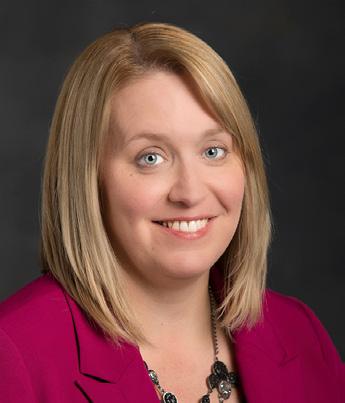
STUDENT AFFAIRS ORGANIZATIONAL CHART
MISSION, VISION, AND VALUES
Vision (Where We Want to Go)
All students are supported through their academic journey, have pathways to achieve learning and career goals and are embraced as valuable members of the UWM community.
Mission (Why We Exist)
Our mission is to create an engaging community where students feel they belong at UWM, to develop transformative learning opportunities outside of the classroom, and to provide services and experiences that support and promote student well-being so that students can thrive, persist, and succeed.
Strategic Priorities (Long-Term Direction)
Belonging: Provide services, experiences, programs, and inclusive spaces that celebrate and honor students’ diverse identities, ensuring everyone feels welcomed, valued, and empowered to be their authentic selves.
Engagement: Actively engage in collaborative partnerships with both internal and external stakeholders to offer opportunities and pathways for students to connect with one another, our institution, and the city of Milwaukee.
Learning: Provide opportunities that challenge students, resulting in knowledge acquisition, critical thinking, skill development, and transformational personal growth.
Well-being: Engage students in a range of initiatives that promote their physical, mental, spiritual, occupational, social, intellectual, and emotional well-being. We provide students with the necessary tools, support, resources, and guidance to navigate their personal health and overall well-being.
Efficient and Effective Operations: Maintain a division that is appropriately resourced, staffed, and structured to support students and staff.
Values (Principles that Guide Us)
Student-Centricity: We center our work around students’ needs, interests, and aspirations; we incorporate and elevate student voices; and we work directly with students as we create and enhance programs and services.
Equity and Inclusion: We cultivate a culture of inclusivity, equity, and belonging through our actions so every member can be their authentic selves.
Collaboration: We develop strong, trusting relationships with students and colleagues to work across areas and toward a common purpose.
Leadership: We develop leadership skills in ourselves and students, empower students and staff to take initiative, practice adaptability and accountability, and demonstrate care.
STUDENT AFFAIRS STRATEGIC PLAN PROGRESS
The 2020-2023 Strategic Plan was our first attempt at providing a unified vision of the Division of Student Affairs (DSA). During this time frame we adapted to national changes in higher education and responded to increasing student needs. Our Annual Reports provide greater detail about the amazing work that the DSA staff conducted during COVID-19, and our Closeout Report summarizes accomplishments and lessons learned from the 2020-2023 Strategic Plan. With this foundation laid, we began the year-long process of creating our next strategic plan.
We began by re-examining our Mission, Vision, Values, and Priorities (MVVP) in Summer 2023. Our earlier values were created in 2011 and served us well for many years; however, our divisional mission and values needed to be articulated as we respond to our students’ changing needs. Once we had these long-term guiding principles in place, we moved on to our operational goals, outlining what we want to accomplish as a division in the next five years. Our divisional committees were assigned goals and tasked with creating outcomes, targets, strategies, and tactics. We launched Connect-Prepare-Thrive: 2025-2030 UWM Student Affairs Strategic Plan in March 2025.
Our progress towards this work will be reported in our Annual Reports, starting with the 2024-2025 report. In the meantime, for this report, we asked departments to share a few stories of how they made an impact on one or more of our strategic priorities. You will find these examples in the department summary pages that follow.

ATHLETICS
The Athletics Department at UWM provides NCAA Division I competition for over 300 students in 15 varsity sports. Gifted student-athletes are attracted to the university because of these programs, and their talents are added to the diverse gifts of the student body. Besides adding to the diversity of the community, the intercollegiate athletics programs add distinction and identity to the University.
The UWM women’s soccer team won the Horizon League regular-season, and tournament, championships, which advanced them to NCAA Tournament for the sixth year in a row. This remarkable team now has 23 regular-season titles, 16 tournament crowns, and 17 trips to the NCAA Tournament. Track & Field displayed dominance, with the women winning both Horizon League indoor and outdoor Championships and the men finished in 2nd in both. Women’s Swimming and Diving took 2nd place at Horizon League Championships.
Having posted these League championship wins in women’s soccer, women’s indoor and outdoor track & field, as well as runner-up in Women’s Swimming & Diving, UWM Athletics has earned the Horizon League Women’s All-Sports Award.
The Milwaukee men’s basketball team rode a late-season surge to a memorable postseason run, finishing one game short of the NCAA Tournament. At 20 wins and 15 losses, it was the 12th time UWM Men’s Basketball has achieved a 20+ win season. Congratulations to Bart Lundy, UWM’s head coach, and the whole program for achieving back-to-back 20-win seasons for the first time since 200506. Lundy is the first MKE coach to win 20+ in back-to-back years since Coach Bruce Pearl (2001 – 2005).
Success continued off the court (or field) as Milwaukee student-athletes participated in community service activities and donated 3,800 volunteer hours. Continuing UWM’s tradition of academic excellence, the Panthers posted a cumulative gradepoint average of 3.00 + for a remarkable 48 consecutive semesters.
Athletics Purpose
Milwaukee Athletics strives to excel in competition and in the classroom while developing leaders who represent our university in a first-class manner. Through excellence, and engagement with our campus and community, we inspire passion and pride in our university.
Engagement: Student-athletes and staff logged over 3,800 hours of community service, volunteering with organizations such as the UWM Food Pantry, Make a Difference Day, Panther Prowl, Special Olympics Tournaments, MPS Schools, Boys and Girls Club Clinics, NMDP (Be the Match), Toys 4 Tots, COA, and Empty Bowls.
Learning: Spring 2024 marked the 48th consecutive semester that studentathletes had recorded a GPA of 3.0 or better, as well as the 19th straight with a 3.20 GPA or higher and the 10th in a row of 3.30 or better.
Well-Being: Athletics added a Mindfulness Room and a Recovery Room, offering tranquil places for student-athletes to catch their breath, quiet their mind, relax and develop mindful self-awareness through the use of relaxation and recovery equipment.
FIRST-GENERATION+ RESOURCE CENTER
CENTERS FOR ADVOCACY AND STUDENT ENGAGEMENT
Services and programs in the First Generation+ Resource Center (FG+RC) include the U1.0 program which is designed to assist first-generation students get acclimated to life on campus, the Lawton Scholars Program designed to increase the retention and degree attainment for underrepresented racial/ethnic minority students in the UW-System, and the Dreamers Initiative, supporting undocumented students at UWM.
2023-2024 brought change for the FG+RC, including a new name, chosen in partnership with students, to better reflect who is served and help others find the space sooner. The FG+RC was less engaged in programming activities in 2023-24, instead, they focused on the search for a new director, hired in Spring 2024, and prepared for a new center identity. While challenging, this period has established the center for years to come.
First-Generation+ Resource Center Misson
The First-Generation+ Resource Center is committed to cultivating a sense of belonging and a supportive learning environment for all UW-Milwaukee students, with a focus on empowering students whose parents(s) and/or guardian(s) did not graduate from a 4-year college or university in the United States.
We celebrate each student’s unique experience and are committed to excellence by facilitating peer-to-peer connections and encouraging critical reflection through various initiatives, experiences, and partnerships. Our center actively works toward building a campus that welcomes all perspectives, fosters meaningful and challenging dialogue, and connects vibrant global communities.
Belonging: The U1.0 Pop-In Welcome Event had 93 participants.
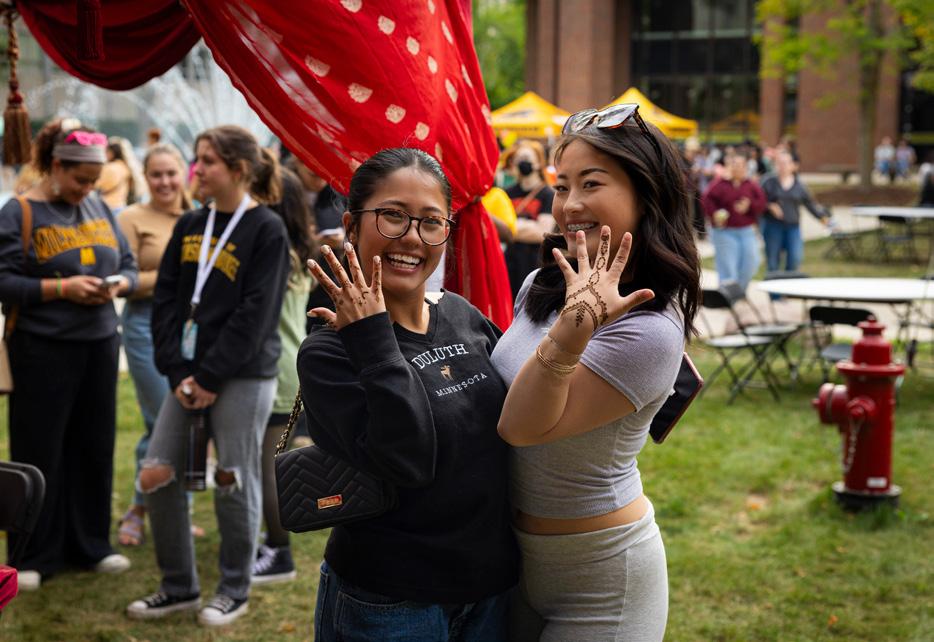
LGBTQ+ RESOURCE CENTER
CENTERS FOR ADVOCACY AND STUDENT ENGAGEMENT
The LGBTQ+ Resource Center provides intersectional programming to uplift LGBTQ+ students and allies and improve the campus climate. This includes annual events like Lavender Graduation, as well as recurring events like the Affinity Group Series and Gayme Nights. They connect students to on- and off-campus resources, provide individualized mentorship and support, and run educational workshops for faculty and staff.
This academic year saw a continued expansion of the center’s audience and campus community, with significant increases in daily traffic, program attendance, and requests for educational workshops. UWM maintained a strong ranking according to the Campus Pride Index at 4.5 stars out of 5, reflecting decades of institutional commitment to building a welcoming and affirming campus for students.
LGBTQ+ Resource Center Mission
The LGBTQ+ Resource Center of UWM is dedicated to supporting students of all genders and orientations through their university careers with our comprehensive resources, programming, education, and mentorship. We actively collaborate with departments across campus to cultivate an affirming and welcoming educational environment for all students.
Belonging: 2,060 visitors came to the Center, using it as a sanctuary space to be themselves and make friends.
Engagement: Events ensured that students had opportunities to engage and connect with the LGBTQ+ community, and resource fairs provided opportunities to connect with off-campus organizations.
Learning: The LGBTQ+ Resource Center hosted 19 campus educational workshops that increased the understanding of the LGBTQ+ community and how to welcome and support them among faculty and staff. Additionally, the center mentored two undergraduate interns and one graduate practicum.
Well-Being: The LGBTQ+ Resource Center hosted the Affinity Group Series, which welcomed 390 attendees this year. The series provided lunch, emotional support, and opportunities for connection.

MILITARY AND VETERANS RESOURCE CENTER (MAVRC)
CENTERS FOR ADVOCACY AND STUDENT ENGAGEMENT
The Military and Veterans Resource Center (MAVRC) addresses the challenges faced by the military-related student. The resource center began as a collaborative effort between military-related students and UWM faculty and staff, several of whom were military veterans, and campus leadership. Each group recognized the unique experiences service members bring to the UWM campus and Milwaukee community, as well as the potential barriers that impede the transition into higher education. Based on the needs expressed, the Military and Veterans Resource Center was created to offer support and advocacy through comprehensive programs, resources, professional development, and community connections in Milwaukee.
The Military and Veterans Resource Center’s goal for 23-24 was to highlight its role within the Centers for Advocacy and Student Engagement (CASE) promoting intersectional support for military-related student population. This was accomplished through affinity groups, mental health and wellness programming, holiday fun, and academic programming with each of the CASE units.
MAVRC also established a central office for various military-related student programs in a new office and lounge space, partnering with the VetsSuccess on Campus (VSOC) and the Military Education Benefits Office (MEBO). MAVRC hosted several Open House events, tabled at New and Transfer Student Orientations, shared social media announcements, and published newsletters. MAVRC partnered with various units on campus to create informational programming about 1st- Generation, Latine, Women, Black, AAPI, and Indigenous veterans, reaching several hundred students.
MAVRC also tabled at several community events, including Military Day at the Zoo, Military Day at the State Fair, Irish Fest, Mexican Fiesta, and many more, reaching over 1,000 military and veterans interested in military education benefits.
Military and Veterans Resource Center Mission
The Military and Veterans Resource Center (MAVRC) is dedicated to supporting all current and former service members, as well as their dependents, in overcoming challenges they may face.
MAVRC strives to help all military-affiliated students at UWM navigate a successful transition from military service to higher education and into the civilian workforce. As part of the Centers for Advocacy and Student Engagement (CASE), we collaborate to support and advocate for students through comprehensive programs, resources, professional development, and community connections in Milwaukee.
Belonging: Branded identity is a very important aspect of military culture, so MAVRC produced UWM/Branch of Military t-shirts and other giveaways to promote the intersectional identity of the military-related student.
Engagement: The Military and Veterans Ball brings current students, alumni, and the community together to restore the bonds created by military service while honoring the hard work of current and former students who seek or have received a degree from UW-Milwaukee. This event promotes connection to the UWM community which enhances engagement on-campus during the academic year.
Well-Being: Veterans often experience trauma on several levels during their time in service. The Military and Veterans Resource Center leveraged a large endowment for military-related mental health and wellness programming. This endowment supports Project 22 MKE Walk|Run|Ride for Military Suicide Prevention and Awareness, Warrior’s Path PTSD Discussion groups, programming during Sexual Assault Awareness Month, and during Veterans Week in November, the VA Mobile Vet Center, a Wellness Garden, and much more.
WOMEN’S RESOURCE CENTER (WRC)
CENTERS FOR ADVOCACY AND STUDENT ENGAGEMENT
The Women’s Resource Center at UW-Milwaukee provides support, resources, and programming to students to promote gender equity and create a safe and inclusive campus environment. The center’s services include programming, advocacy, leadership development, and community-building opportunities.
In Fall 2023, the Women’s Resource Center celebrated 30 years of advocating for gender equity and beyond at UWM. In addition to the 90’s themed prom, hosted to recognize and celebrate the 30-year milestone, the WRC hosted Feminist Fiber Arts events, co-sponsored yogi Jessamyn Stanley and astronaut Mae Jemison for two Distinguished Lecture Series, hosted Student Parent Coffee Hours, body positivity programming, and anti-violence programs like Take Back the Night and Denim Day.
In addition to these events, the WRC maintained the space in the Student Union where all students can visit to find feminist education and community. In the WRC, Students can find connections through professional staff to other campus and community resources, free safer sex supplies, menstrual hygiene products, and a cozy and inviting space where peers are often chatting and supporting each other. Student interns and employees work to build a thriving community where anyone can learn more about advancing gender equity on campus and beyond.
Women’s Resource Center Mission
The Women’s Resource Center works to advance gender equity at UWM and beyond. We advocate for ending gender violence and promote well-being and safety through education and empowerment. Through our programs and resources, all students are encouraged to engage with feminist perspectives, build connections, and find community.
Belonging: After attending Feminist Fiber Arts events, students surveyed felt more connected to campus, less stressed, and more comfortable seeking out other programs and services from the WRC.
Engagement: Students can engage with the WRC by attending events designed to support women on campus.
Learning: The WRC created a space where all students can learn about intersectional feminism and how they can advocate for gender equity. Student employees in the center felt their position prepared them for their job search after UWM, noting they found value in professional communication practice, program planning and implementation, and professional development sessions.
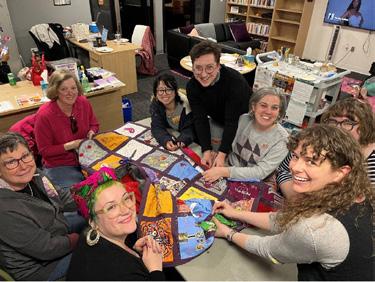

CHILDREN’S LEARNING CENTER (CLC)
The Children’s Learning Center (CLC) provides childcare and early education for children of faculty, staff, and students at UWM, serving children ages 6 weeks-13 years. The Center also employs nearly 175 UWM students and offers field experiences for students in several campus programs and majors.
The Children’s Learning Center continued work towards the 2022-2025 Strategic Plan of “Building Connections, Growing Community.” The Center made significant changes in the onboarding process of new student staff, streamlined processes for ensuring quality care in all classrooms, and made efforts to boost in-person staff connections after years of post-Covid separation. The Children’s Learning Center increased community collaborations, including partnerships with the Urban Ecology Center and Wisconsin Conservatory of Music. The CLC is also proud to have created a multi-sensory space, to better support children with varying developmental needs.
The CLC maintained its accreditation through the National Association for the Education of Young Children for the 38th consecutive year. Through the growing pains of slowly reopening classrooms and increasing the number of student employees, the Center’s full-time staff remained dedicated and proud of the work that is done daily to improve the lives of children and families at UWM. The Children’s Learning Center remains a place where the highest value is placed on giving children the best possible start, while also supporting families as they work, attend school, and navigate parenthood.
Children’s Learning Center Mission
The UWM Children’s Learning Center supports the University and community through the provision of high-quality care and education for children, families and UWM students.
Belonging: The Children’s Learning Center hired a record number of international students as caregivers in 2023. Many of these students had expressed that they were homesick and missed connections with their families and siblings. Working at the Center became a home away from home for these students, giving them a grounding place to belong and thrive.
Engagement: The Student Parent Success Program and Family Services Coordinator started monthly coffee chats at various locations around campus, giving student parents broader access to resources and community, and increased engagement between the CLC and campus partners.
Learning: CLC continued to grow their partnerships with campus partners, including Speech and Language, Physical Therapy, and the School of Education. Students gained valuable real-world experience in their chosen fields while providing needed services to Center children.
Well-Being: The Center created an internal ‘Reflection Space’, a private area for students to meet their spiritual needs through prayer, worship, or meditation.
DEAN OF STUDENTS OFFICE (DOSO)
The Dean of Students Office (DOSO) is a student-focused office at UWM. DOSO helps students navigate challenging circumstances and get connected to resources. Additionally, the DOSO guides students to build a responsible and respectful community. In the Summer 2024, DOSO revisited its strategic plan, and developed a vision: We are experts in navigating complex student issues/ challenges where we engage all members of the UWM community to build UWM’s capacity to support students.
DOSO continued to experience increases in the number of students who are connected to case managers, who seek emergency grants, and who access the food pantry. Professional staff were nimble in responding to many student challenges and crises while navigating staff turnover. Threat assessment cases increased in 2023-2024, with increased consultations and complaints about student behavior. This year also saw an increase in academic integrity cases, which will culminate in a restorative justice program in following years.
The Student Association Professional Staff supported UWM’s student government through a transition year with student leadership and staff turnover. Staff rallied to support core functions, seeing a notable increase in SA grants awarded through Student Association. The UWM Off-Campus Resources Center (OCRC) merged with UWM’s PantherVotes program and continues seeing increased participation in programs.
DOSO cares for students, often when they are faced with innumerable challenges. DOSO staff have championed students, elevated their voices, and worked to create a community of support for all UWM students.
More information at: https://uwm.edu/studentaffairs/assessment/#reporting
Dean of Students Office Mission
The Dean of Students Office supports holistic student well-being and success while providing intentional and practical responses to matters that impact UWM students and community. We accomplish this through educational programming, collaborative partnerships, and a commitment to inclusion and equity.
Belonging: The Off Campus Resource Center remodeled their physical space, resulting in increased engagement from students and community members.
Engagement: The Student Association Professional Staff increased the distribution of Student Appropriation Grants compared to previous years.
Learning: The student conduct team advanced a restorative justice proposal for student misconduct processes.
Well-Being: The case management team facilitated Support U workshops and increased navigation of student support cases.
Efficient and Effective Operations: DOSO continued improvement in data and assessment, with a plan to revamp their annual report for the 20242025 year.
DINING AND RETAIL SERVICES (DRS)
Dining and Retail Services is responsible for the preparation, distribution, and service of food to the campus community through a variety of operations, including residential dining halls, branded retail outlets, coffee shops, catering, and convenience stores located throughout campus.
The entire team in Dining and Retail Services worked diligently to ensure customers’ needs were met during a period of transition. 2023-2024 saw multiple leadership changes, including the Director (January 2024). The interim director joined the DRS team in April 2024.
Updated standards in the food management software and its implementation were assessed, making staff jobs more efficient. DRS conducted UWM’s first all campus customer satisfaction survey to query campus constituents and review all DRS units. Data indicated a need for more attention to dietary needs, hours of operation, and the improvement of food variety. The work for both of these projects is ongoing.
A food service consultant was retained to develop a Master Plan for the overall department and assist in determining priorities to ensure the long-term success of the department. Specific items to be addressed include Focus on the Food, Regain Trust of Campus Partners, Institute Systems, determine if current franchise locations should continue or be replaced, and Improvement to the retail dining experience. New meal plans will be instituted to improve the customer experience, and further work is being done to reopen The Palms Garden (Sandburg Hall), closed since the COVID-19 pandemic, in fall 2025.
Efficient and Effective Operations: In a continuation from 2022-23, Dining and Retail Services increased food management system use to enable monitoring of costs. This included monthly inventories in all operating units and cleaning up system data. In addition, the point-ofsale system was updated to enable more accurate reporting.
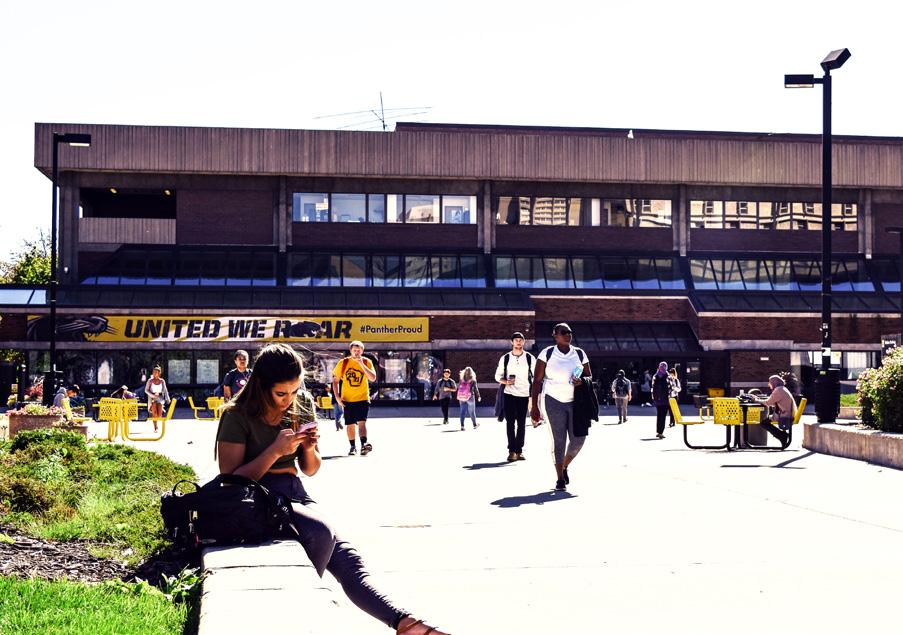
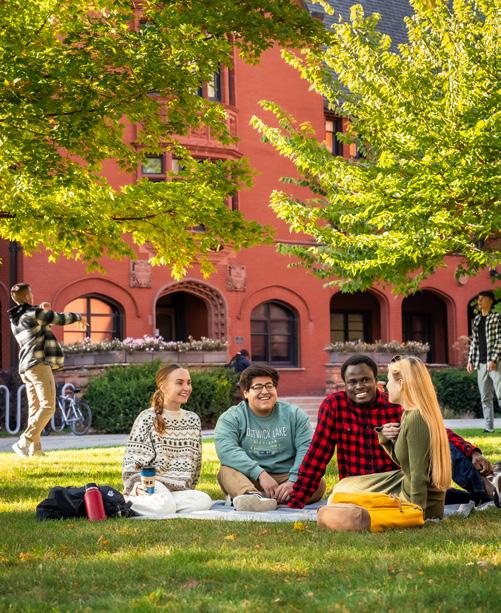



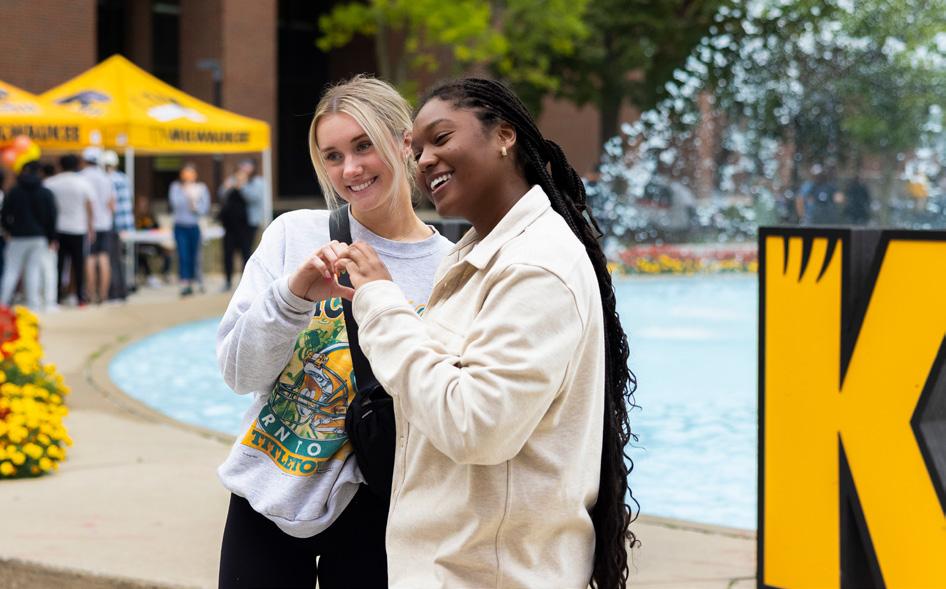
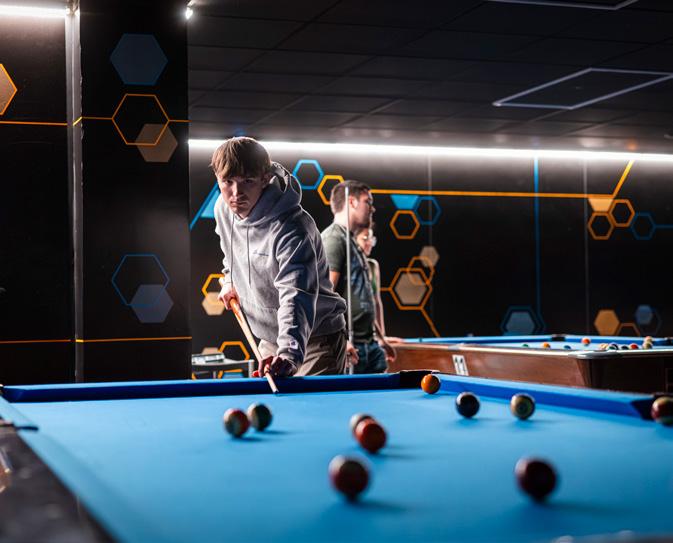
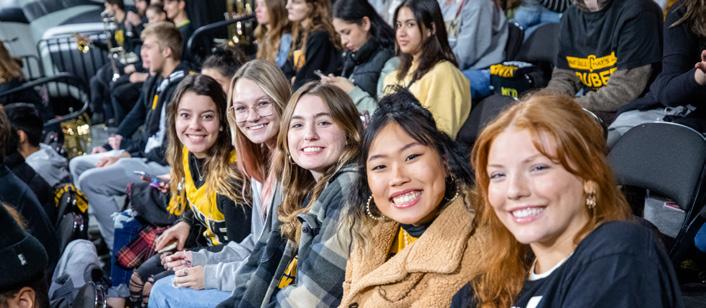

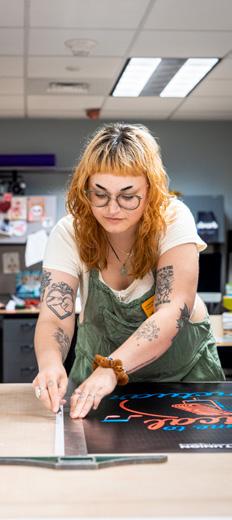
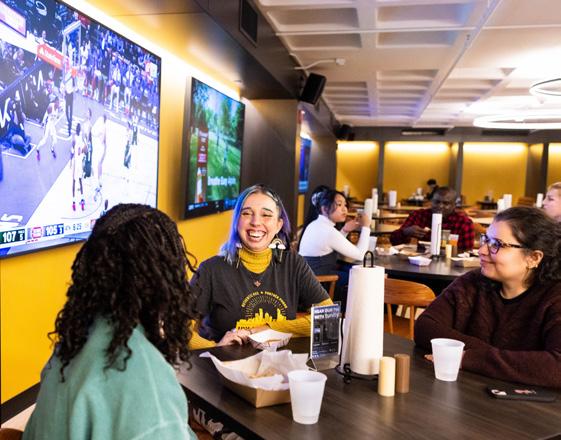

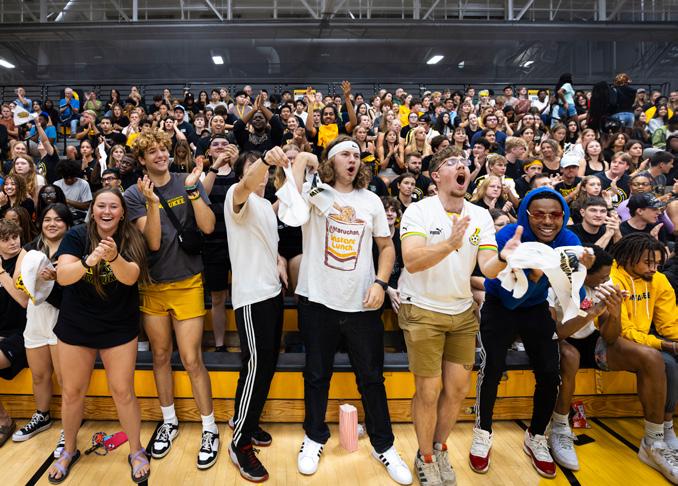
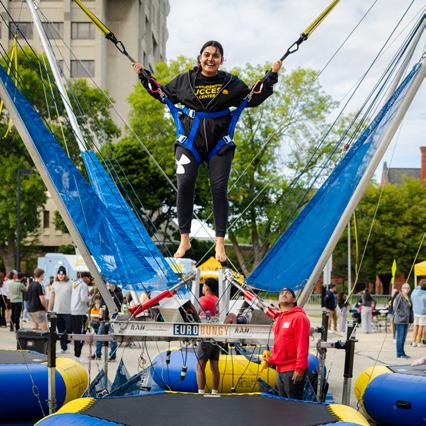
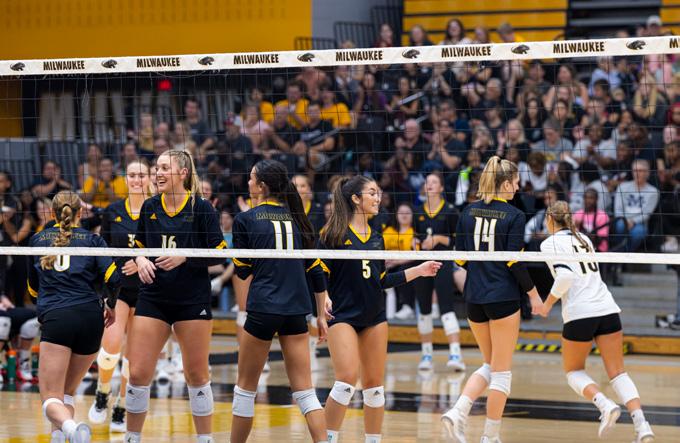

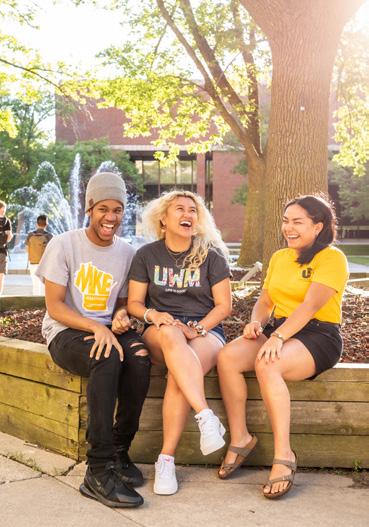

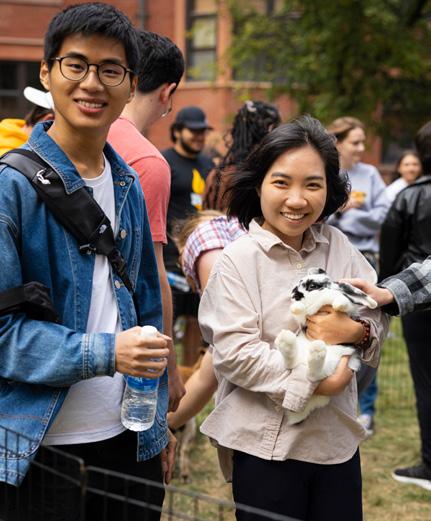
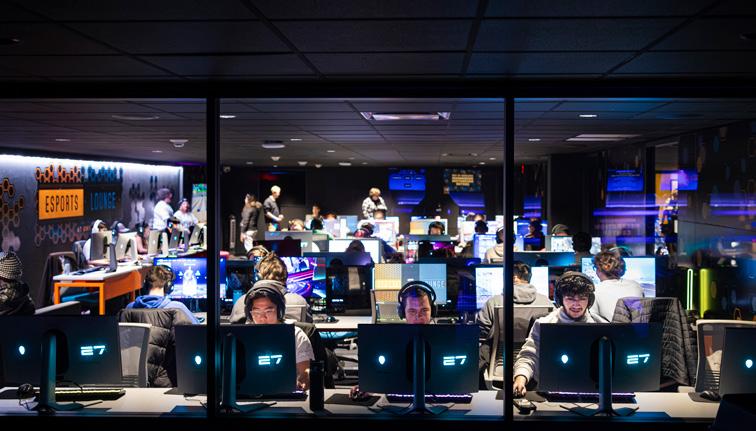
STUDENT AFFAIRS BUDGET & FINANCE
STUDENT AFFAIRS ADMINISTRATIVE SUPPORT
The Division of Student Affairs Budget and Finance department develops and manages the annual student Segregated Fee budget process in compliance with UW-System Regent Policy 30-5 (Policies and Procedures for Segregated University Fees). The process includes ensuring that the allocable and nonallocable student segregated fees are assessed in accordance with UW System Administrative Policy 820 (Segregated University Fees) and also includes procedures and requirements on how student governance groups participate, review, and offer advice on the budget proposals. We seek to maintain student support, while also limiting any chargebacks to the Segregated Fee and auxiliary units (which could result in increased student fee rates).
The Student Affairs Budget and Finance department plays a crucial role in managing the financial aspects of student fees and other related expenses within the division. By supporting the annual budget process, and ensuring policy compliance, the staff contribute to the smooth operation of various divisional units. The Budget and Finance department manages annual rate increases for student fees, demonstrating a commitment to balancing the needs of students with financial sustainability. The Budget and Finance department provides counsel, transparency, and analysis to the student government, divisional leadership, and the department of financial planning. Overall, the work of the office is vital in maintaining financial stability while serving the best interests of students and the division.
Student Affairs Budget & Finance Mission
Student Affairs Budget & Finance seeks to maintain student support by minimizing student fee rates and ensuring compliance with UW system policies
Efficient and Effective Operations: UWM is in the “middle of the pack” for segregated fee rates in the Universities of Wisconsin system. This only occurs with careful oversight and support for the segregated fee units as they balance costs with service and operational priorities.
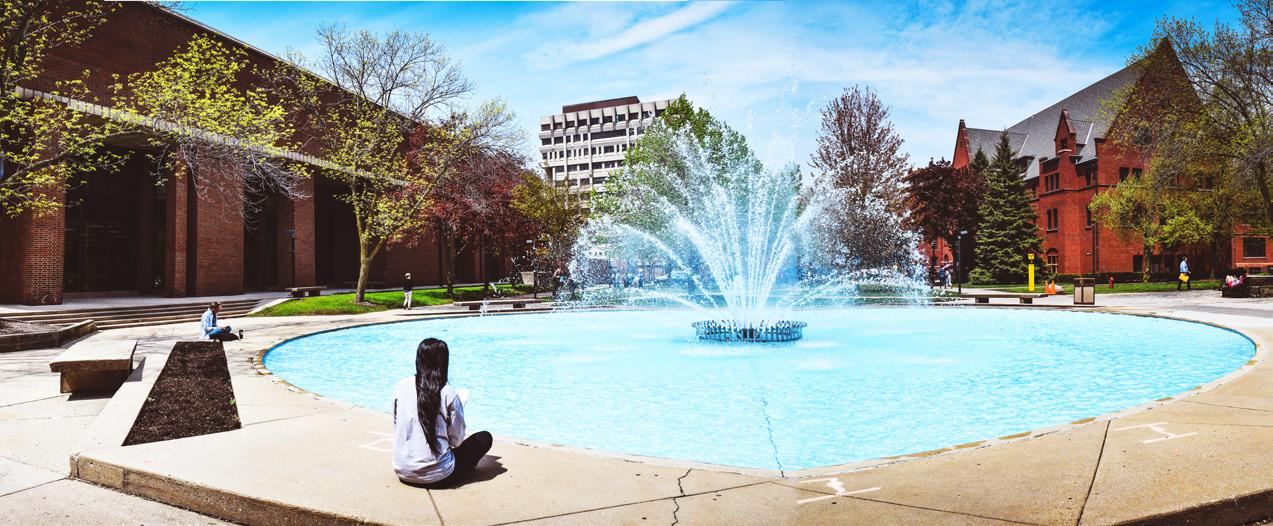
TECHNOLOGY INTEGRATION AND ENGAGEMENT SERVICES (TIES)
STUDENT AFFAIRS
ADMINISTRATIVE SUPPORT
Technology Integration and Engagement Services (TIES) has a staff of 10 who support and advocate for the technology needs of the Divisions of Student Affairs and Strategic Enrollment Management & Student Success. In 2023-24 we incorporated changes aimed at creating a more supportive, inclusive, and connected campus environment.
TIES made many improvements throughout the year, including updated websites and enhanced services, that will make it easier for students of diverse backgrounds to access important information and resources. Operational enhancements, such as the implementation of Ivanti Neurons and the transition to Hyper-V, mean that IT services will be more responsive and efficient, reducing downtime and improving the overall user experience.
TIES also improved the speed and reliability Wi-Fi in the Student Union, ensuring students stay connected for both academic and social activities. Staff partnered with the UWM Student Union Recreation Center in opening the Esports Lounge, a dedicated space for gaming with 45 high-powered computers where students can enjoy a variety of competitive and recreational gaming experiences. TIES introduced a streamlined process for submitting preferred names and gender identities, and introduced VBO Tickets, a ticketing software, which will make it easier for students to participate in campus activities.
Technology Integration and Engagement Services (TIES) Mission
Provide the needed technology services, support, and solutions so others may focus on the success and well-being of our student population.
Belonging: TIES rolled out forms for students to submit their preferred name and gender identity.
Engagement: TIES employed VBO Tickets, a ticketing software, to allow Student Involvement and the Student Union to implement ticketed events and made enhancements to Student Involvement to better highlight opportunities for students to get involved.
The Esports Lounge is the culmination of a multi-year collaboration between TIES, Campus Technology Support, and the Student Union with student feedback and input, fostering a sense of community and a fun way to unwind.
Well-Being: TIES upgraded all wireless access points in the Student Union to provide faster, more reliable Wi-Fi access. The upgrade helps ensure students can stay connected in more spaces, supporting their academic needs and social activities.
Efficient and Effective Operations: TIES implemented forms and processes that reduce manual data entry and improved efficiency in workflow processing. For example, Admissions can quickly process applications and communicate with various schools and the registrar’s office can get more students registered faster. TIES transitioned all virtual servers from VMware to Hyper-V, reducing costs and making the IT infrastructure easier to manage.
STUDENT LEARNING, ASSESSMENT, AND PLANNING (SLAP)
STUDENT AFFAIRS ADMINISTRATIVE SUPPORT
Student Learning, Assessment, and Planning provides vision for retention and student success initiatives, coordinates the Division’s assessment efforts, and leads Divisional strategic planning and reporting processes.
This was the second year that the Student Affairs Assessment Committee used rubrics to provide feedback to units on their assessment templates and reflections. The Committee looked at where units are struggling with the assessment cycle and discovered a need for more training developing targets and using general assessment practices. In response, SLAP included a panel of coordinators answer the question “How do you come up with targets?” during the annual meeting for unit leaders and divisional points of contact in June 2024.
SLAP has been coordinating the creation of the next five-year Connect-PrepareThrive: 2025-2030 UWM Student Affairs Strategic Plan. SLAP created and administered several surveys throughout the year to get staff feedback on drafts and facilitated multiple small- and large-group conversations to generate ideas and address concerns.
SLAP assisted all committees where necessary as they worked to develop strategies, tactics, and metrics for their operational goals. For example, SLAP worked with the Student Learning and Development Committee to create and finalize student goals and outcomes and collaborated with the Development and Operations Committee to create and finalize employee goals. 79% of survey respondents agreed the strategic planning process was inclusive, and 89% agreed it was transparent.
Student Learning, Assessment, and Planning Mission
Student Learning, Assessment, and Planning provides the divisional vision, guidance, and frameworks to ensure all departments demonstrate progress through measurement, are aligned with divisional and institutional strategic priorities, promote student learning experiences, and are represented in one cohesive story about how the division impacts student success and retention.
Learning: SLAP continued to champion the Curricular Approach to Student Affairs methodology: a research-based approach for identifying what UWM wants students to experience outside of the classroom, organize student opportunities based upon these goals, and provide roadmaps for students to get there. In 2023-2024, a subteam of the Student Learning and Development Committee drafted student goals and outcomes and gathered feedback from students and stakeholders.
Efficient and Effective Operations: The 2021-2023 biennial report and the 2020-2023 Strategic Plan Closeout Report were created to document the Division’s impact on student success.

MEDICAL
STUDENT HEALTH AND WELLNESS CENTER (SHAW)
Student Health and Wellness: Medical provides holistic medical care in a primary care setting, including treatment and evaluation for acute illness and injuries, preventative care, and management of disease. The clinic also provides minor procedures, such as suturing simple lacerations. Medical also administers an onsite lab and an in-house medical dispensary providing many common prescription and non-prescription medications. Medical ensured appointment availability within 24-48 hours, often accommodating same-day scheduling. All services are provided in an affordable manner with many services incurring no charge.
Student Health and Wellness: Medical Mission
A recognized and accredited leader in student health providing excellent health care in partnership with the campus community.
Belonging: Medical provided LGBTQ+ in-service trainings and facilitated the Gender Affirmation Committee (GAC), which collaborated on ways to making services inclusive for all. This committee has representation from medical, counseling, LGBTQ+ resource center, and students. There were 180 appointments for Transgender Care.
Engagement: Medical launched a weekly “Ask A Nurse” service at Sandburg Residence Hall, engaging students with healthcare questions and providing them convenient access to professional advice.
Learning: Medical collaborated with the School of Nursing and the School of Rehabilitation Sciences & Technology to have students use SHAW as their clinical site. Medical provided quarterly suture training and IV fluid rehydration workshops on-site to the Athletic Trainer students.
Well-Being: Flu shots were provided as was consultations to prepare students for safe and healthy personal or school related travel.
Efficient and Effective Operations: Medical collaborated with the Dining and Retail Services to provide Epi pen in cafes at Sandburg Hall Dining areas. Medical’s Outreach committee worked with UWM Marketing and Communications to implement way-finding signage within the Northwest Quadrant building.
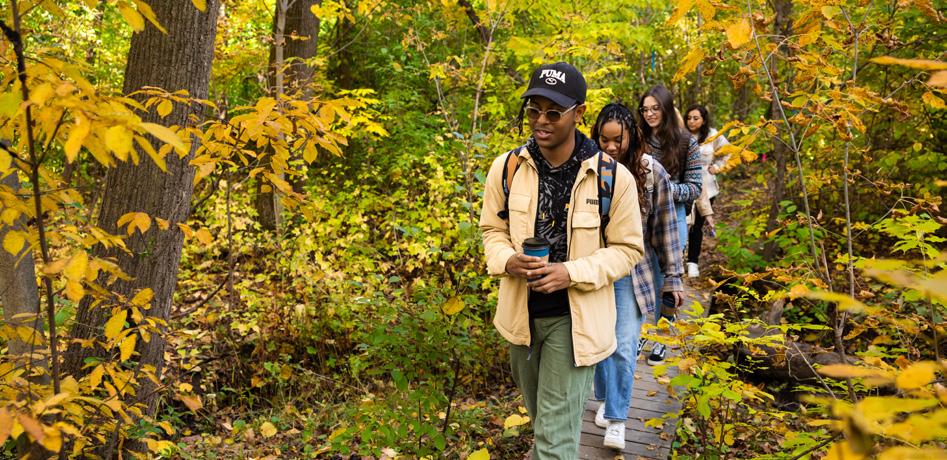
COUNSELING
STUDENT HEALTH AND WELLNESS CENTER (SHAW)
Student Health and Wellness: Counseling is an outpatient mental health clinic for UWM undergraduate and graduate students. The clinic provides individual, group, psychiatry, and case management services for both undergraduate and graduate students at UWM. In 2023-24, the clinic experienced continued success in the Mindful Space, and welcomed new treatment options for students, including the implementation of a biofeedback group and individual service. Counseling collaborated with the Athletics department and the NCAA to complete mental health screenings for all student athletes.
In the spring of 2024, Counseling hosted the annual Wisconsin Area College Counseling Conference (WACCC), an opportunity to network and collaborate with professionals across the State of Wisconsin. The conference was the highest attended in its program’s history and shares the newest and most cutting-edge practices in college mental health.
More UWM students come to campus with greater mental health needs than ever before. Even though the clinic continues to see an increased number of students who come to campus with mental health needs and high acuity/risk, the UWM Counseling team continues to provide high quality and timely services.
Student Health and Wellness: Counseling Mission
To serve the mental health needs of UWM students and to serve as a training site to train the next generation of mental health providers.
Belonging: The Mindful Space continues to destigmatize mental health and wellness. Its popularity continues to grow, especially by international students who may not otherwise engage in traditional services.
Engagement: Counseling introduced biofeedback as a treatment option and will begin to market this service to help engage students in STEM fields who gravitate more toward technology and data. Biofeedback uses computer programming to help clients see real-time data changes in their physiological stress and learn to control it to achieve a sense of calm.
Learning: Counseling staff continues to participate in professional development, including training on LGBTQ and trans-affirming letters of readiness and treatments for insomnia.
Well-Being: Counseling expanded the Let’s Talk program to in-person sessions across campus, including weekly groups at MAVRC and the Roberto Hernandez Center. These efforts to help promote wellbeing to unique communities across campus.
Efficient and Effective Operations: Counseling continued improvement in data collection, analysis and storytelling.

HEALTH PROMOTION AND ADVOCACY (HPA)
STUDENT HEALTH AND WELLNESS CENTER (SHAW)
Student Health and Wellness: Health Promotion & Advocacy (HPA) educates, empowers, and advocates through its wellness programs, trainings, one-to-one consultations and online resources. EDUCATES: increases knowledge and skills in students to develop healthy behaviors and positively contribute to their community. EMPOWERS: helps students recognize and use their strengths and abilities to enhance personal and community health. ADVOCATES: stands with students as they prioritize well-being for themselves and others.
In 2023-24, HPA lead the Panther Transition Experience Wellness Session for new students and implemented a more accessible hybrid suicide prevention training for faculty/staff. HPA lead a multi-disciplinary team in defining “well-being” at UWM, and supported a new clinical initiative for alcohol screening, including brief interventions and referrals to treatment. HPA also expanded the marketing of mental health services to students and completed a grant-funded mindfulness project involving eight student Wellness Fellows.
Student Health and Wellness: Health Promotion and Advocacy Mission
We promote the health and well-being of students through education, empowerment, and advocacy so they can thrive throughout their academic and personal lives.
Engagement: HPA employed 17 students and was a placement site for two student field experiences and one student capstone project.
Learning: HPA designed and implemented new assessment tools to measure competencies required of the Peer Health Educators (PHE) student staff to effectively perform their job responsibilities. The tools assisted HPA staff in better identifying needs for additional training and opportunities for advancement for qualified PHEs and created a model for student employee skills assessment.
Well-Being: HPA coordinated the 2024 National College Health Assessment of UWM students, gathering data from 1,200 student respondents to understand health-related attitudes, behaviors and conditions. The results inform decisions about well-being services, programs and priorities.
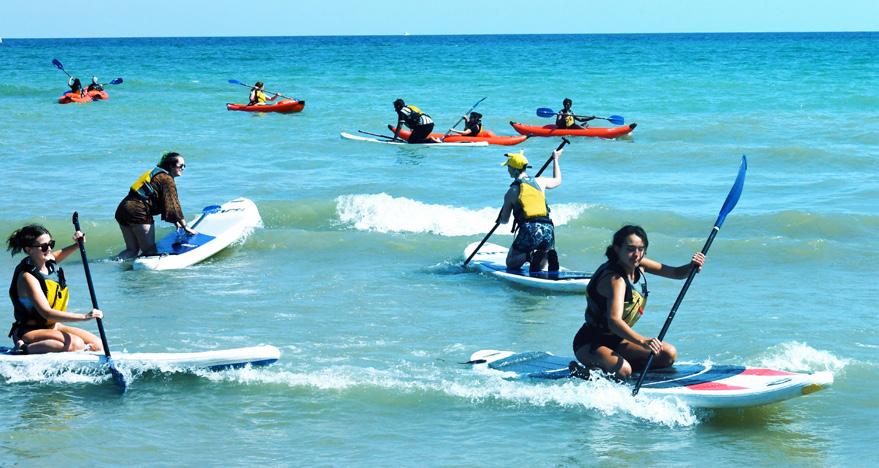
STUDENT UNION
The UWM Student Union operates the Student Union facility, including event spaces and experiential areas, for the enjoyment and social development of UWM Students and the greater campus community. The UWM Student Union also produces programs and partners with campus constituencies to support their missions through event planning and strategic communications.
The 2023-2024 Academic Year in the UWM Student Union was focused on the “reactivation” of spaces and services following the completion of a multiyear renovation project. It is important to remember that by fall semester 2023, most enrolled students had never experienced a fully functioning Student Union at UWM.
Student Union Mission: In the Student Union, we provide programs, services, and facilities for University of Wisconsin - Milwaukee students to find community, build relationships, and make memories that support and complement their academic journey.
Student Union: Student Involvement continued efforts to support and increase meaningful engagement opportunities. Student Involvement continued to support numerous high impact campus traditions while exploring innovations in programming, student leadership, activities, and student organization support.
In 2023-24, the Union Art Gallery completed a year of installations and exhibits in its new, high profile, location. Leadership programming offered additional opportunities with “Drop-in” leadership experiences. Updated Student Leadership Programs, alongside training and outreach programs for RSOs (Registered Student Organizations), strengthened campus engagement. RSO support services report improved engagement and learning in the participating students.
Student Union: Event Services re-engaged full use of the Union facilities. With various displaced programs returning to their traditional home and increased patron engagement, the Union finally engaged its climb back to its pre-pandemic levels. Having shifted core operations during Union closure and “partially opened” statuses, the booking, events planning, production, and audio-visual teams worked hard to ensure quality services while rebuilding core student leadership roles and legacy knowledge. The collaborations this team has built throughout UWM during the pandemic and renovation years have created a new foundation for campus and services integration.
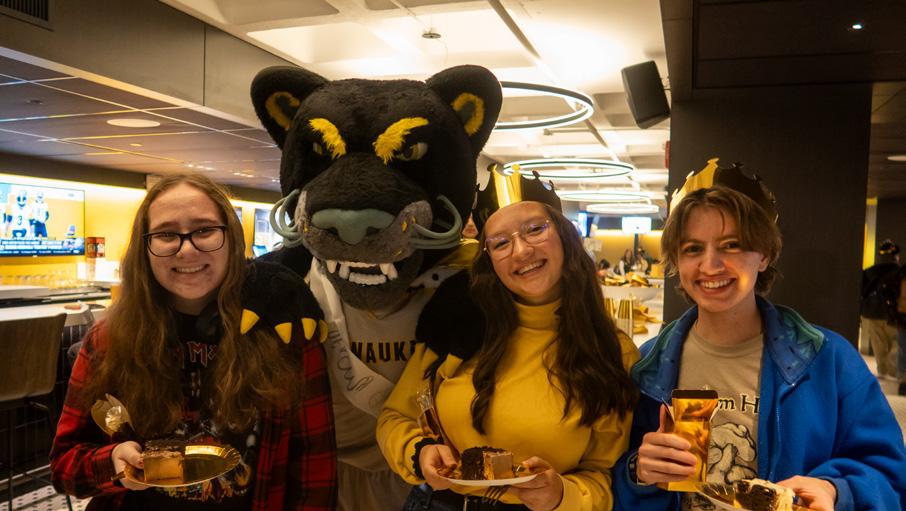
STUDENT UNION
Student Union: Building Operations: A significant initiative was completing updates to facility security systems including cameras, physical locks, and electronic locking systems. The onboarding of a second-shift Maintenance Supervisor filled a critical leadership role within the mechanical services team. This addition was essential in providing comprehensive coverage and ensuring the consistent maintenance of the building’s systems. Renovation provided new areas, surfaces, and furniture to be cleaned and maintained, challenging Custodial Services to redevelop standard practices and protocols to meet the ongoing needs of the campus community in vastly different physical spaces.
Student Union: Marketing Services had an exceptionally busy year, managing operational functions while addressing larger strategic communications needs. This was critical as 2023 - 24 welcomed the first full implementation of digital signage in the Union, and a new evolution of the Institution’s brand assets and UWM brand personality. Marketing leadership continued to play a strong role in Student Affairs communications and marketing efforts as additional shared resourcing, cross departmental support, and increased brand/ strategic alignment helped support staff and students in multiple branches of the division.
After two years working at a consultative level with UWM Dining & Retail Services, Union Marketing shifted to accommodate 100% of requested DRS marketing, communications, and public relations functions. This transition welcomed important modifications and improvements to Union Marketing in a pursuit to offer a full marketing firm experience. This helped DRS focus on their service delivery and infrastructure work.
Belonging: The Student Union’s full reopening after a two-year renovation provided many new and different spaces for students to connect, study, and relax, fostering a sense of belonging and community on campus.
Engagement:”The Greatest Show” event was hosted in Fall 2023, celebrating the grand reopening of the Union, inviting students to explore and engage with parts of the building they may not have experienced before.
Learning: The Studio Arts and Crafts Center reopened, and the Esports Lounge was launched to offer students opportunities to develop both technical skills and lifelong skills such as communication, leadership, and teamwork.
Well-Being: The Student Union supported initiatives like PantherPause and the opening of the Reflection and Meditation Space, which support students’ mental and emotional health during critical times such as finals.
Efficient and Effective Operations: The Student Union Traffic Reporting initiative improved insights into programming, signage, and building usage. This data will be compared to the new door counter system and post-occupancy survey data collection in 2024-2025 for more informed decision-making.

UNIVERSITY HOUSING
University Housing provides safe, comfortable, and well-maintained housing for students, promotes student leadership, and works with academic departments to foster an effective living-learning environment.
University Housing researched the reasons students chose to leave housing during their contract period, providing valuable insights supporting UWM’s retention initiatives. Housing tours played a crucial role in recruiting incoming students by helping them feel comfortable and confident about their future living arrangements. These tours contributed to a smoother transition and fostered a positive start to their college experience. Additionally, Smart Panther Programming enriched the learning experiences of students living in residence halls. By offering tutoring and academic support, this programming provided essential resources to help students achieve academic success.
University Housing Mission
University Housing is committed to enhancing community members’ cultural understanding, leadership skills, academic success, social connections and social responsibility by creating safe, comfortable, and well-maintained living learning environments that inspire growth and development.
Belonging: The Student Union’s full reopening after a two-year renovation provided many new and different spaces for students to connect, study, and relax, fostering a sense of belonging and community on campus.
Engagement:”University Housing engaged residents through programs like Res Life Spirit in collaboration with Athletics and the Panther Activities Committee. DirectorConnect is an opportunity for all members of the community to have in-person time with the Director of University Housing to share their experiences, offer suggestions, and share any concerns that they may have in the residence halls.
Learning: The Living Learning Communities (LLCs) support student academic success, with first year LLC residents achieving higher GPA than their offcampus peers. The ASL LLC members attended a trip to Gallaudet University for an immersive learning experience.
Well-Being: Well-being is promoted through annual Sex Week events, the Mantra Mental Health service, and the public posting of mental health resources.
Efficient and Effective Operations: University Housing’s sustainability partnerships with stakeholders throughout the city of Milwaukee and donations made to Goodwill made the Move-Out process more efficient.

UNIVERSITY RECREATION (UREC)
UREC offers a diverse range of facilities, programs and services tailored to meet the individual needs of students and members through programs and activities that support active lifestyles, encourage overall wellbeing, and instill a sense of belonging at UWM. There are programs in fitness, open recreation, intramural sports, sport clubs, outdoor recreation, and aquatics. UREC’s friendly and dedicated student and professional staff help visitors discover ways to be happier and healthier.
UREC is a vital contributor to the health and well-being of the UWM campus community. In 2023-24 UREC increased participation and satisfaction levels through the many and varied facilities, programs, and services. Additionally, UREC examined program impact on retention, looked at ways to establish, prioritize, and strengthen links and collaborations with the Student Health and Wellness Center (SHAW), and continued to provide for the health and wellbeing of the students of UWM.
University Recreation Mission
To enrich the overall health and wellbeing of the UWM campus community, University Recreation provides opportunities to engage in lifelong learning, develop healthy habits, celebrate personal successes, and connect.
Belonging: UREC collaborated with the Student Health and Wellness Peer Health Educators, Campus Activities Board, the Women’s Resource Center, and the LGBTQ Resource Center in a body inclusive pool party during Body Acceptance Week. UREC also supported a sport club that organized and competed as a women’s and non-binary club.
Engagement: UREC Fest, where students, faculty, and staff get to sample all UREC offerings, drew approximately 500 attendees in just 2.5 hours. UREC also began to assess trends toward the retention of participants, starting with Sport Clubs Program participants.
Learning: UREC offered personal training and Red Cross CRP/First Aid/AED courses. UREC also offered activities including learning to longboard and paddleboard and took part in the Experiential Learning Kickoff.
Well-Being: UREC’s Outdoor Pursuits program collaborated with the SHAW Peer Health Educators in a mindfulness walk and coordinated a river cleanup event, the Fitness Program offered a wide variety of group exercise classes, including the popular glow week classes during both the National Eating Disorders Awareness Week and Body Acceptance Week, and UREC professional staff participated in suicide prevention training.
Efficient and Effective Operations: University Recreation (UREC) held an annual all-student staff training at the start of the fall semester and participated fully in the Division of Student Affairs Assessment program.

APPENDIX A
4th Tuesday Session: An hour has historically been held on the “4th Tuesday of each month” for divisional staff to be used for presentations, divisional work/updates, celebrations, and professional development.
ACPA: College Student Educators International.
CASE: Centers for Advocacy and Student Engagement. CASE comprises the WRC, LGBTQ+RC, MAVRC, and First Generation+RC.
CLC: Children’s Learning Center.
Co-curricular: Learning activities, programs, and experiences that reinforce the institution’s mission and values and complement the formal curriculum (HLC definition).
Curricular: The lessons and academic context taught in a school or in a specific course or program (HLC definition 2023).
CPT: Connect-Prepare-Thrive. These are the three student goals.
Culture of Evidence: We would like to move the division towards a culture of evidence. See rubric from this source for more detailed explanations: Spurlock, R.S. & Johnston, A.J. (2012). Measuring a Culture of Evidence. In M. Culp & G. Dungy (Eds.), Building a Culture of Evidence (p. 65). Washington, DC: NASPA.
Curricular Approach: A methodology for identifying what we want students to experience outside of the classroom, organize what we do based upon these goals, and provide roadmaps for students to get there. See Kerr, K.G., Edwards, K.E., Tweedy, J.F., Lichterman, H., & Knerr, A.R.: (2020). The Curricular Approach to Student Affairs: A Revolutionary Shift for Learning Beyond the Classroom (1st ed.). Routledge.
DOSO: Dean of Students Office.
DSA: Division of Student Affairs.
Extra-curricular: “Extra-curricular” activities are activities for students that are not in support of their course of study. They may grow efficacy or be socially or otherwise relevant but not specifically designed to support the curriculum. (HLC definition)
FFE Expenditures: FF&E costs are the expenses associated with acquiring and delivering furniture, fixtures, and equipment (FF&E) for a construction project.
HGA: Hammel Green and Abrahamson (HGA) is an architectural firm that offers services in the following areas: interior design, landscape architecture, planning, project management, and engineering. HGA led the planning, including pre-occupancy and post-occupancy assessment for the Student Union renovation project.
HLC: The Higher Learning Commission, UWM’s accrediting body.
• HLC assurance argument: A narrative in which the institution explains how it meets HLC’s Criteria for Accreditation (HLC definition).
• HLC criteria: The framework for determining an institution’s accreditation (HLC definition).
• HLC findings: What the HLC found during its evaluation. A report submitted by the peer review team to HLC documenting its findings and recommendation following an evaluation (HLC definition).
APPENDIX A
ACRONYM GUIDE AND GLOSSARY
HPA: Health Promotion & Advocacy.
KPIs: Key Performance Indicators.
Lawton: The Lawton Undergraduate Minority Retention Grant Program (Lawton Program) is designed to provide financial assistance to need-based statutorily designated minority undergraduate students to improve their opportunities for retention and graduation and reduce the burden of student debt. See https://uwm.edu/firstgen/programs/ lawton-scholars/
LGBTQ+RC: The Lesbian, Gay, Bisexual, Transgender, Queer + Resource Center.
MAVRC: Military and Veterans Resource Center.
MVVP: Mission, Vision, Values, Priorities.
NCHA: National College Health Assessment. Administered every three years.
NSSE: National Survey of Student Engagement. Administered every three years.
OCRC: Off-Campus Resource Center.
POC: Point of Contact.
Re-enrollment rate: The percentage of a cohort who graduated before or re-enrolled for the next term.
SET: Center for Student Engagement and Talent.
SHAW: Student Health and Wellness Center.
STAR Awards: Staff That Are Remarkable Awards are given at an annual award ceremony and are nominated by Division of Student Affairs staff.
SupportU: As part of fostering a culture of support at UWM, DOSO developed and launched Support U, a set of student services that includes emergency grants, food pantry, and comprehensive student support case management. Support U also launched a student support comprehensive skill-building workshop for the campus community, focused on creating a culture of care for students in need.
Panther GROW: Panther GROW® (Guided Reflection on Work) uses brief, structured conversations between student employees and supervisors to help students connect the skills and knowledge they are gaining in the classroom with the work they are doing, and vice versa. See https://uwm.edu/set/panther-grow/
UREC: University Recreation.
Well-being: A positive state linked to health, quality of life, and the ability to contribute to the world with a sense of meaning and purpose. An individual’s wellness and the community and environment around them -- where they live, learn, work, and play -- all shape well-being.
WRC: Women’s Resource Center.
June 2023
July 2023
Aug 2023
Sept 2023
Oct 2023
Nov 2023
Dec 2023
APPENDIX B
OPPORTUNITIES FOR FEEDBACK ON THE STRATEGIC PLAN
Planning for the future
Mission, Vision, Values, Priorities (MVVP) “Refresh”
MVVP “Refresh”
Divisional 5-year Goals & Outcomes (D5)
Divisional 5-year Goals & Outcomes (D5)
Student Goals (SG)
Student Goals (SG)
Employee Goals (EG)
Jan 2024
Employee Goals (EG)
Feb 2024 Employee Goals (EG)
March 2024
Student Outcomes (SO)
April 2024 Student Outcomes (SO) Employee Outcomes (EO)
May 2024 Action Plans (AP) Employee Outcomes (EO)
June 2024 Action Plans (AP) Employee Outcomes (EO)
July 2024 Action Plans (AP) Employee Outcomes (EO)
Aug 2024 20-23/24 Plan Celebration
Sept 2024 Action Plans (AP)
Oct 2024 Action Plans (AP)
Nov 2024 Action Plans (AP)
Dec 2024
Final draft due to VC Haag for final review
• VC Haag shared draft at the June 15 Divisional meeting
• MVVP all staff survey closed July 17
• July 27, 2023, virtual MVVP Discussion with KH and all staff that included Microsoft Form feedback opportunities
• MVVP feedback discussed at ILT Aug. 1
• D5 all staff survey closed on October 9
• Focus group was held on October 10
• ILT reviewed feedback on Oct. 17
• SG concept presented to the Student Association
• First draft of SG presented to DSA at in-person Nov. 1 session with external consultant facilitating and gathering feedback
• SG presented on Dec.11 to staff outside DSA and a Microsoft Form was used to gather feedback Dec. 11-Dec. 15
• SG feedback from about 100 students. Peer Health Educators, the Women’s Resource Center, Student Association, and Housing were invited as well as any students who wanted to join a focus group
• EG feedback was sought at DSA virtual divisional meeting on January 23 via small group work
• EG all staff survey closed on Jan. 30
• ILT reviews SG on Feb. 6
• SO brainstorming meeting was held on March 7 with multiple committees and representatives from the Center for Student Experience and Talent
• ILT provides EG feedback on March 19
• SO feedback was gathered via World Café approach at DSA divisional meeting on April 23 (in person only)
• SO feedback gathered on April 25 via virtual meeting that included staff both inside and outside DSA
• SO feedback was gathered at four student group meetings and one open focus group session
• Committees worked on action plans
• ILT reviewed SO draft and feedback on June 18
• Committees worked on action plans
• EO feedback gathered at the August 20 divisional potluck meeting
• Committees worked on action plans
• Committees worked on action plans
• Feedback gathered from ILT
• Survey to all staff for final comments about the plan and the overall process closes on Nov. 26
• Survey feedback discussed with committees
• VC Haag made final edits
